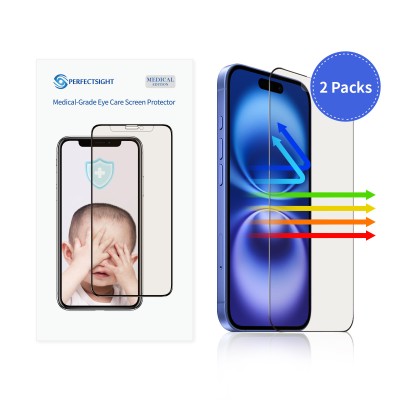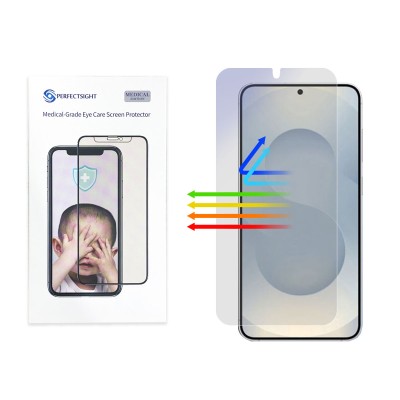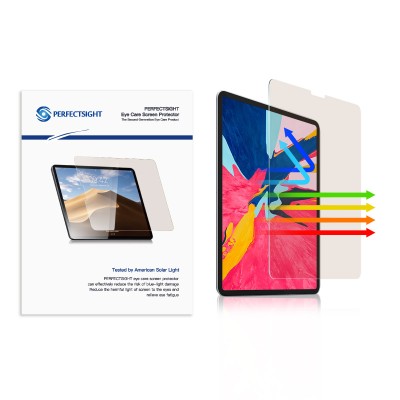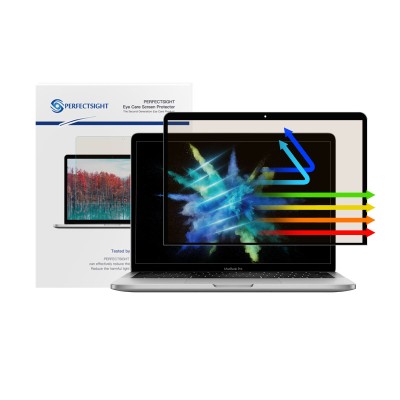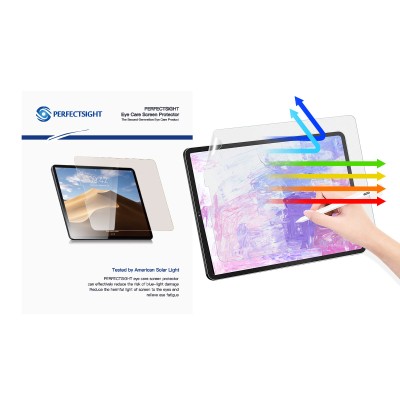Red Light vs. Blue Light Screen Protectors: How to choose iPhone 17 screen protector?
In today's digital age, where screen time is increasingly unavoidable, protecting your eyes from the effects of prolonged device use has become a common concern. Screen protectors marketed for eye comfort, namely Red Light and Blue Light Screen Protectors, have emerged as popular solutions. While both aim to reduce eye strain, they operate on fundamentally different principles and offer distinct benefits and drawbacks. Learn about them and choose the iPhone 17 eye protection screen protector that suits you!
🔍 How They Work: Blue Light Screen Protector vs. Red Light Screen Protector
- Blue Light Screen Protectors:
These protectors function primarily as a filter. They use special coatings to absorb, reflect, or block a portion of high-energy blue light (typically in the 380-500 nm wavelength range) emitted by screens. The goal is to reduce the amount of this light reaching your eyes, thereby lessening potential exposure. For example, PERFECTSIGHT's anti-blue light screen protector is based on the excellent optical properties of rare earth elements, which can absorb and emit light of various wavelengths from ultraviolet to infrared. This product has a blue light blocking rate of 55%-70% for the most damaging blue light in the 435nm-440nm range.
- Red Light Screen Protectors:
This is a newer technology. Instead of just blocking light, these protectors are designed to convert some of the screen's blue light into long-wavelength red light (around 650 nm). The proposed theory is that this specific red light may promote cellular metabolism and blood circulation in the eyes, potentially alleviating fatigue.
⚖️ Similarities Between Red Light and Blue Light Protectors
Despite their different mechanisms, these protectors share some common goals and features:
1. Primary Objective: Reduce Eye Discomfort: The fundamental aim of both types is to alleviate symptoms associated with prolonged screen use, such as eye strain, dryness, and fatigue.
2. Target Users: Both are marketed towards individuals who spend significant time on digital devices—office workers, students, gamers, and anyone concerned about the effects of screen time on their eyes.
3. Potential for Color Distortion: Both types can affect the display's color accuracy. Blue light filters often cause a yellowish tint, while red light converters might introduce a slight reddish hue, especially at wider viewing angles. The extent of this effect depends heavily on the product's quality.
Key Differences
| Feature/Aspect | Red Light Screen Protector | Blue Light Screen Protector | |
| Working Principle |
Converting a portion of the screen's blue light into red light of a specific wavelength |
Filters or absorbs harmful blue light through a special coating |
|
|
Core Technology |
Light conversion technology converts blue light at 450-480nm into red light at 650nm. |
Blocking blue light through substrate absorption or film layer reflection technology |
|
|
Primary claimed benefits |
Relieve eye strain, prevent or slow the progression of myopia, and improve blood circulation in the fundus. |
Reduce eye dryness and fatigue, minimize melatonin suppression, and improve sleep quality. | |
|
Technology Maturity |
relatively new |
Relatively mature and common |
|
|
Display Effect Impact |
May be slightly flushed |
May appear slightly yellowish |
-400x400.jpg)
